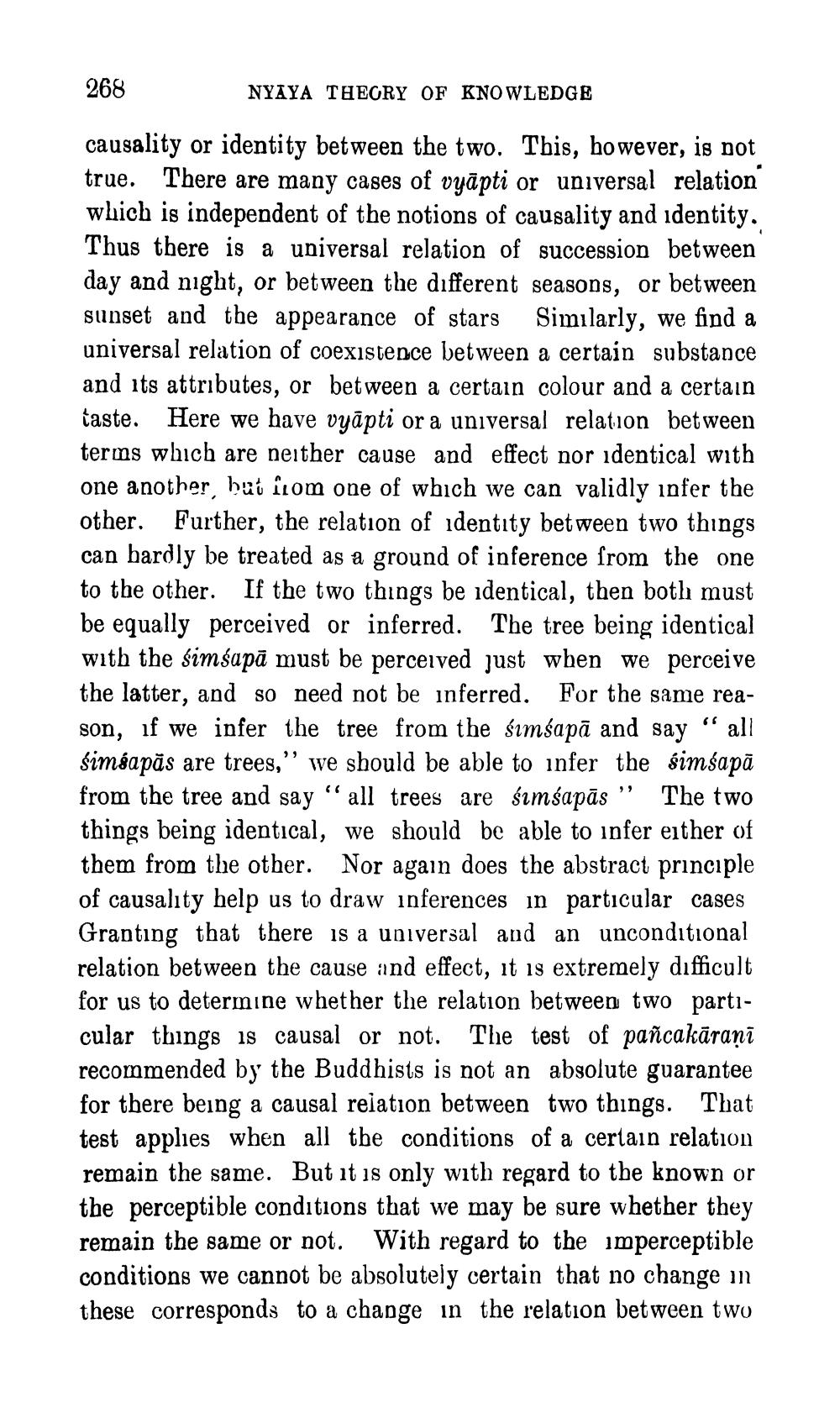________________
268
NYAYA THEORY OF KNOWLEDGE
causality or identity between the two. This, however, is not true. There are many cases of vyāpti or universal relation which is independent of the notions of causality and identity. Thus there is a universal relation of succession between day and night, or between the different seasons, or between sunset and the appearance of stars Similarly, we find a universal relation of coexistence between a certain substance and its attributes, or between a certain colour and a certain taste. Here we have vyāpti or a universal relation between terms which are neither cause and effect nor identical with one another, but inom one of which we can validly infer the other. Further, the relation of identity between two things can bardly be treated as a ground of inference from the one to the other. If the two things be identical, then both must be equally perceived or inferred. The tree being identical with the simsapā must be perceived just when we perceive the latter, and so need not be inferred. For the same reason, if we infer the tree from the simsapā and say " all simšapās are trees,"' we should be able to infer the simsapā from the tree and say "all trees are simšapās” The two things being identical, we should be able to infer either of them from the other. Nor again does the abstract principle of causality help us to draw inferences in particular cases Granting that there is a universal and an unconditional relation between the cause and effect, it is extremely difficult for us to determine whether the relation between two particular things is causal or not. The test of pañcakāraṇī recommended by the Buddhists is not an absolute guarantee for there being a causal relation between two things. That test applies when all the conditions of a certain relation remain the same. But it is only with regard to the known or the perceptible conditions that we may be sure whether they remain the same or not. With regard to the imperceptible conditions we cannot be absolutely certain that no change in these corresponds to a change in the relation between two




